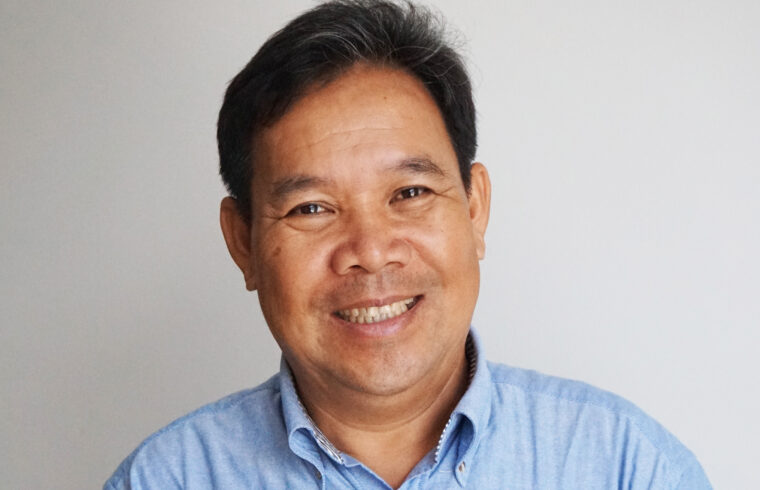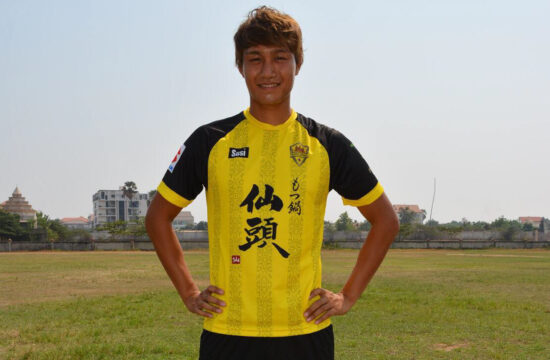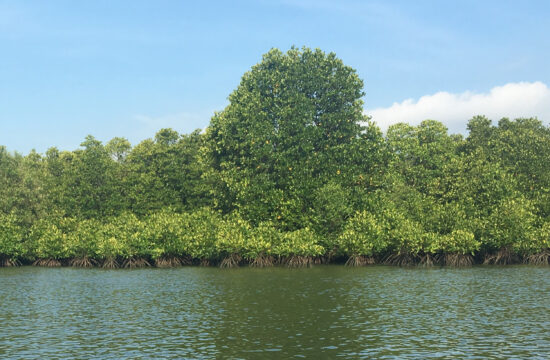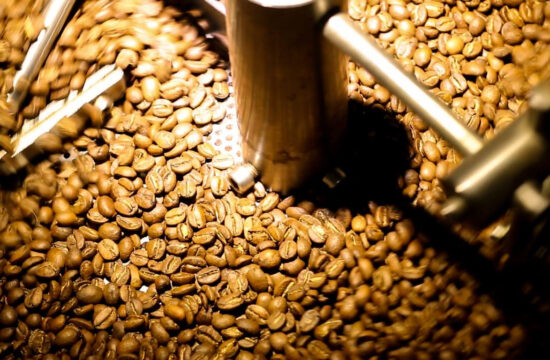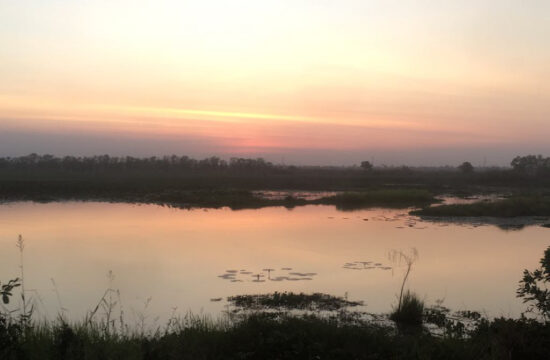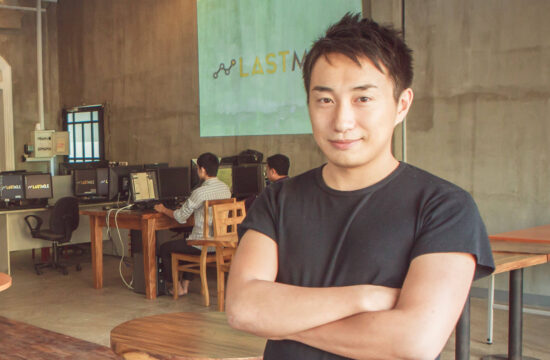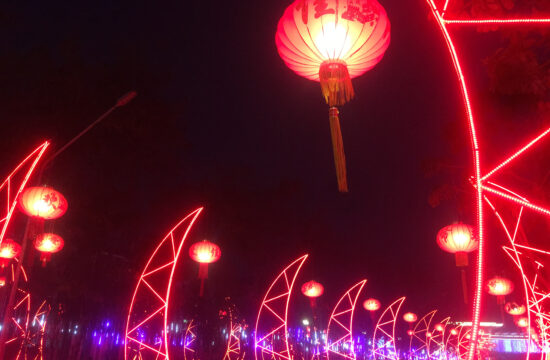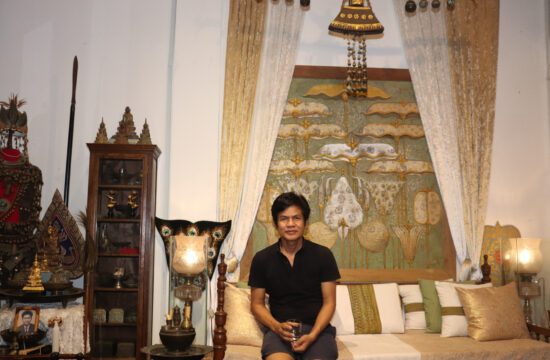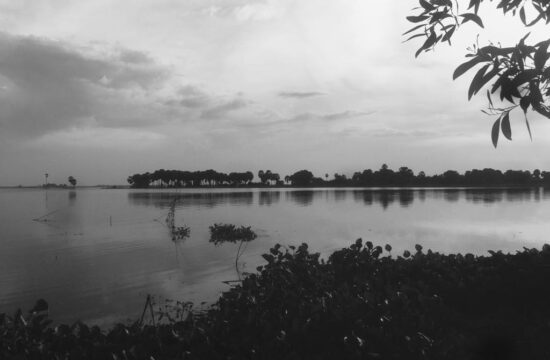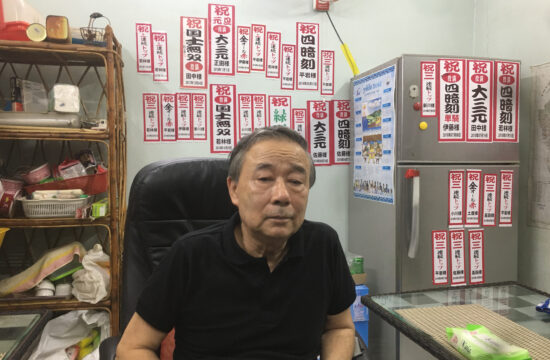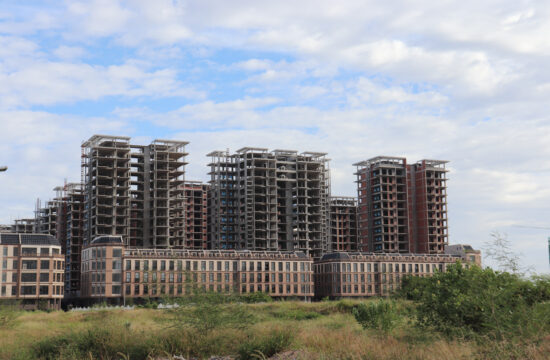Ministry of Education, Youth and Sport
Deputy Director General of Sport Mr. Mel Kado
– In the past few years in Cambodia, we have seen many people enjoy sports. How has the domestic sports culture changed before and after the civil war?
In Cambodia in the early 1960s various coaches, including JICA volunteers from Japan, were dispatched. In 1966 the Olympic Stadium was completed, and sports such as boxing, women’s volleyball, soccer, and swimming were very popular until the early 1970s. Under the Pol Pot regime, they were eliminated entirely. This is the fact, not a story. During the reconstruction after the civil war, people prepared uniforms and made their own playgrounds with enthusiasm. Prime Minister Hun Sen, who was fond of sports before the civil war, also played volleyball and soccer and encouraged the revival of the sport. Major development started around 1998. First, there is peace, and cultural pursuits, including sports, have evolved with economic development.
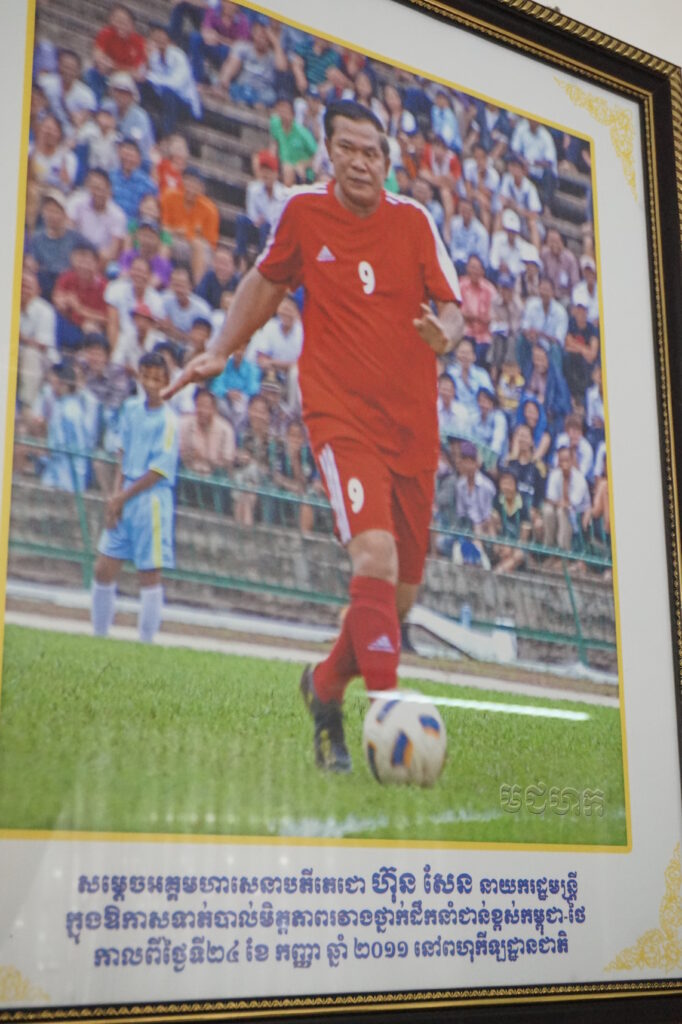
– As the Ministry of Sports, what kinds of policies have been adopted for sports promotion?
In the Sports Bureau, there is a program for sports training with four targets: people, students, athletes and coaches. In order to improve support and incentives for players, we provide rewards and further opportunities in accordance with the results of international tournaments. We hold a variety of lectures regularly, and correspond generously to active participants and coaches.
What are popular among the people are games such as football, boxing and volleyball; however, the government particularly supports taekwondo, karate and judo. For team sports, it is difficult to gather great players and to grow as a team, but for individual games they can challenge in the world at a personal level. Among sport study abroad programs, soccer has the strongest track record.
– As mentioned earlier, Japan has also made an effort in sports promotion and level improvement in Cambodia.
Japan has sent a large number of coaches so far in fields such as swimming, karate, and soccer. Other than that, we thank them for providing a variety of supports, including education of coaches, guidance and consulting on the management of teams and organizations, textbook creation and expansion of physical education by JICA, and the promotion of physical education. When we played against the Japan national football team last year, we played well and it was a good experience. In the future, I also want support from Japan to popularize physical education for the children of this country.
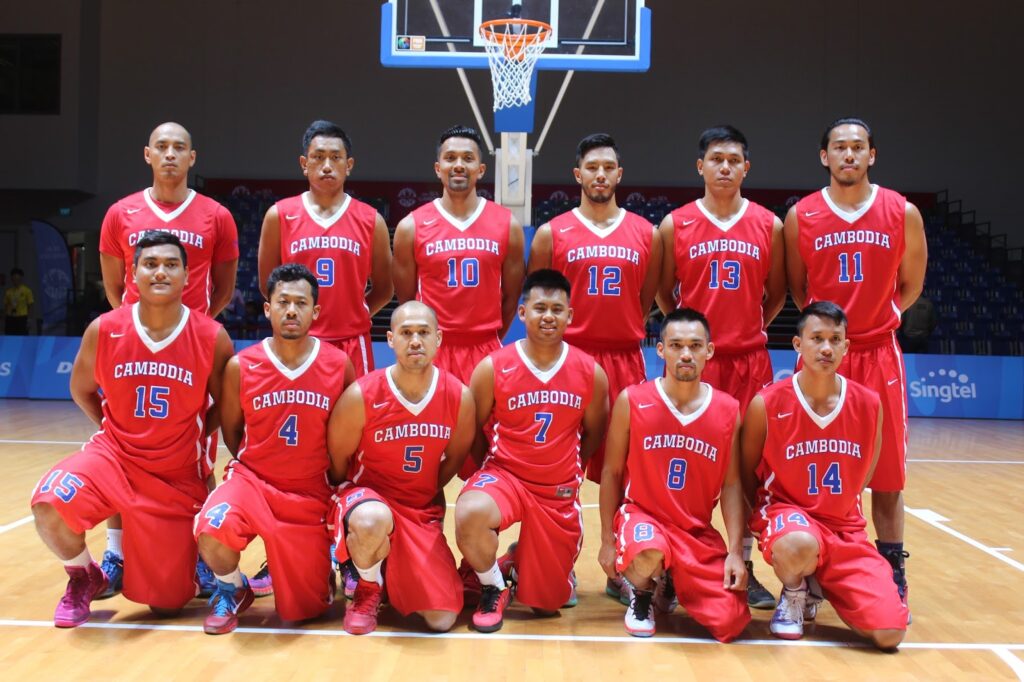
– In 2023 the SEA GAMES will be held in Cambodia. How are you preparing?
We have established new stadiums for swimming, soccer, and volleyball. Last year, a swimming competition facility was completed in Kampong Cham and a ceremony was held. Currently, a new stadium is under construction near the Chroy Changvar Bridge. Of course, it is necessary to strengthen players to leave good grades, and education of office staff and methods of organization management along the plan are also established.
– Someone may say that society can do without arts and sports, so why do you want to promote sports culture now?
Because it is a means that people can live healthily, gather with their companions and deepen their friendships. The joy of victory is the one and only precious thing. Sport is always fair, and a result always comes out if taken seriously. I wish that people would enjoy life through sports.

